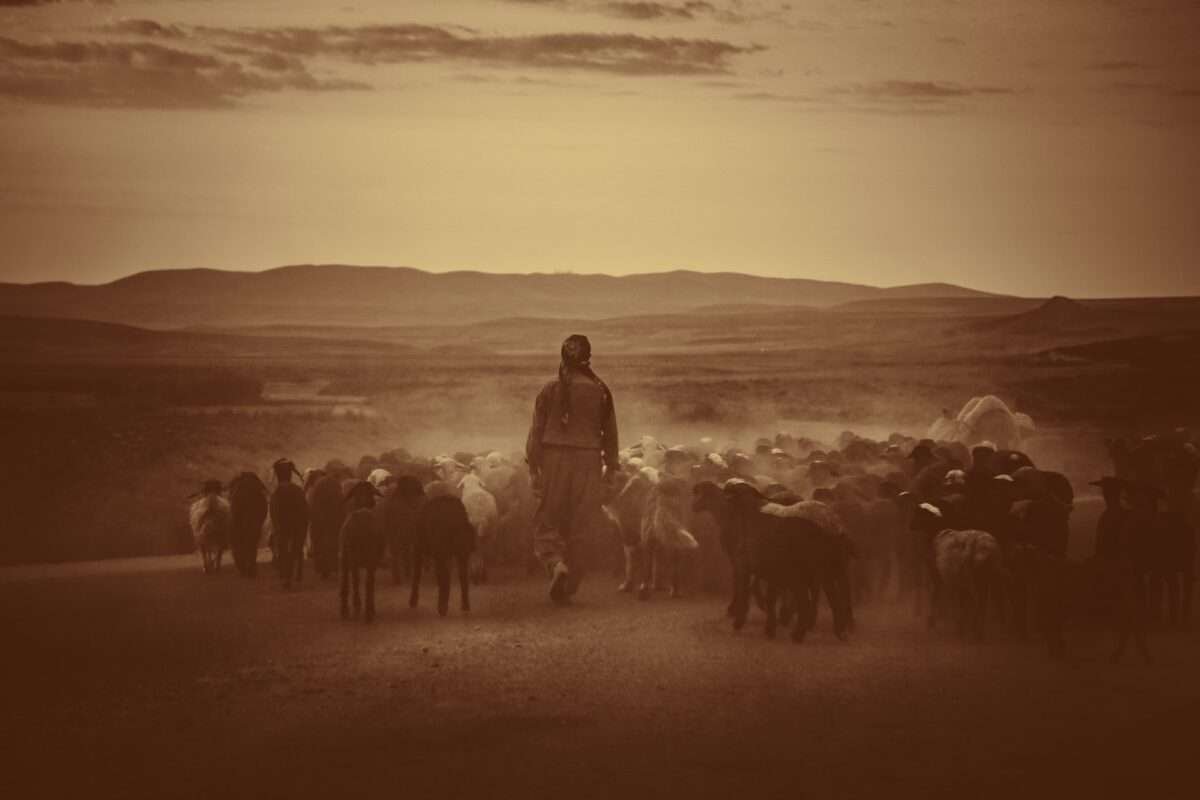I AM The Good Shepherd

7 minutes to read
The shepherd analogy is one of the most common of all the analogies used in the Bible to illustrate God’s relationship with His people. Psalm 23 begins with the words, “The LORD is my shepherd…,”1 wonderfully depicting God’s care for His people (cf. Ps. 80:1). The Old Testament has a lot to say about shepherding because the Jewish people were shepherds (Gen. 47:3), making it an appropriate picture of God's relationship with His people.
God led His people by the hand of Moses and Aaron as a flock through the wilderness (Ps. 77:20).
Joshua was spoken of as a shepherd to lead God’s people in Numbers 27:17, 18.
David was a shepherd boy who fought off a lion and a bear to protect his sheep, until God called him as a shepherd over the people of Israel (1 Sam. 17; Ps. 78:70–72).
1 Chronicles 17:6 tells us that the Judges were called to shepherd God’s people.
There were also examples of poor shepherds who abandoned the people, failing to lead them according to God’s Word. Jeremiah has a lot to say about shepherds like these. Jeremiah 2:8 says, “The priests did not say, ‘Where is the LORD?’ Those who handle the law did not know me; the shepherds transgressed against me; the prophets prophesied by Baal and went after things that do not profit.” (cf. Jer. 10:21; 12:10)
Jesus knows us not just informationally, but intimately.
Ezekiel records similar accusations against the leaders of Israel. These were leaders who were deeply self-centred and callous toward the people. They ensured that they themselves were “fattened”, well clothed, rich and prosperous, while the people suffered. They neglected the people, failing to care for the weak, the frail, the hurt, and those in despair (Ezek. 34:2 – 4).
Against this background we read John 10:11, where the Lord Jesus speaks of Himself with these words, “I am the good shepherd. The good shepherd lays down his life for the sheep.”
The more immediate context of John is the events of John 9, when the Lord Jesus heals the man who was born blind. Rather than rejoicing at this miracle, the Pharisees find fault with the man and with Jesus, accusing them of breaking the Sabbath (Jn. 9:16). After a sharp discussion with the man who was healed, they cast him out of the synagogue (Jn. 9:34). The very shepherds who should have celebrated the work of God and the healing of one of their own, found reason to take offence.
In John 10 the Lord Jesus then describes for us what true shepherding looks like and why He is the good shepherd who cares deeply for His sheep.
He Is The True Shepherd
Unlike the Pharisees and scribes who pretended to shepherd the people, the Lord Jesus was the true shepherd of His people (Jn. 10:1-3). He presented himself genuinely, without any pretence or false motive. F.B. Meyer writes, “Robbers may turn shepherds, climbing the walls of the fold, or swooping down on the flock and driving it off…their purpose is for the flesh and fleece, to kill and to destroy. They have no more the true shepherd's heart than a bandit has a soldier's or a pirate a sailor's.”2
The religious leaders, caught up in their own self-preservation, presented the people with a false and misleading way of salvation. The Lord Jesus came to show His people the true way of salvation, into which they could enter through Christ, the door of the sheep (Jn. 10:7, 9).
He Lays Down His Life For Us, His Sheep
A shepherd was not expected to lay down his life for his sheep. He would do everything he could to protect his sheep, but would stop short of dying for them. The life of the shepherd was of far greater value than his sheep. When Jesus says that He is the good shepherd who lays down His life for His sheep, it adds a surprising and unexpected dimension to shepherding. This was a radically different shepherd. Jesus, who is of infinitely greater worth than we are, was willing to lay down His life for His people which he did through his death on the cross (Jn. 10:11).
Peter writes, “He himself bore our sins in his body on the tree, that we might die to sin and live to righteousness. By his wounds you have been healed. For you were straying like sheep, but have now returned to the Shepherd and Overseer of your souls.” (1 Pet. 2:24–25).
The Lord Jesus, the good shepherd, will lead, guide, and protect His people, come what may.
He Knows His People Personally And Intimately
Meyer writes, “The Eastern shepherd knows all the particulars of each of his sheep; its genealogy, defects, temper, and tastes, and embodies someone of these in the name he gives it.”3 We have a Shepherd who knows us through and through. Jesus knows us not just informationally, but intimately. He comprehends us in the deepest way possible and He is drawing us into a relationship where we might know Him in the same way.
Jesus says, “I am the good shepherd. I know my own and my own know me, just as the Father knows me and I know the Father; and I lay down my life for the sheep.” (John 10:14–15). The relationship that Jesus has with His people is intimate and personal, just as His relationship with the Father is intimate and personal.
This ought to bring us encouragement as it did David when he said in Psalm 139:1-2, 6, “O LORD, you have searched me and known me! You know when I sit down and when I rise up; you discern my thoughts from afar…Such knowledge is too wonderful for me; it is high; I cannot attain it.” It is deeply comforting to rest in the knowledge of our Saviour.
He Leads And Protects His People
When a shepherd calls and leads his sheep, it is a picture of protection and guidance. The sheep know his voice and they follow up trustingly (Jn. 10:3, 4). The shepherd will also stay and protect them when they are attacked by a wolf, unlike a hired hand who might not be willing to take that risk (Jn. 10:12, 13).
The Lord Jesus, the good shepherd, will lead, guide, and protect His people, come what may. His shepherding is not just for the good times in green pastures, but for the troubling times. When the metaphorical wolves attack and thieves seek to steal, kill and destroy, the good shepherd will care for His people. He promises never to leave them or forsake them (Heb. 13:5b).
He Gives His People Life
Everything that Jesus has done for His people is for our good, as much as it is for His glory. He is the good shepherd who leads us into abundant life (Jn. 10:10 cf. Rom. 8:6) as well as eternal life (Jn. 10:28). Jesus says, “My sheep hear my voice, and I know them, and they follow me. I give them eternal life, and they will never perish, and no one will snatch them out of my hand. My Father, who has given them to me, is greater than all, and no one is able to snatch them out of the Father's hand. I and the Father are one.” (Jn. 10:27–30).
These words ought to bring us great security and comfort in this life. As well as, a joyful expectation and hope for the life to come, as we await the appearing of the great shepherd of our souls, the Lord Jesus Christ (1 Pet. 2:25).
1 All Scripture quotes are in the English Standard Version
2 F.B. Meyer, The Ideal Shepherd, Commentary on John 10 - https://www.preceptaustin.org/gospel_of_john-f_b_meyer-3#8
3 Ibid




